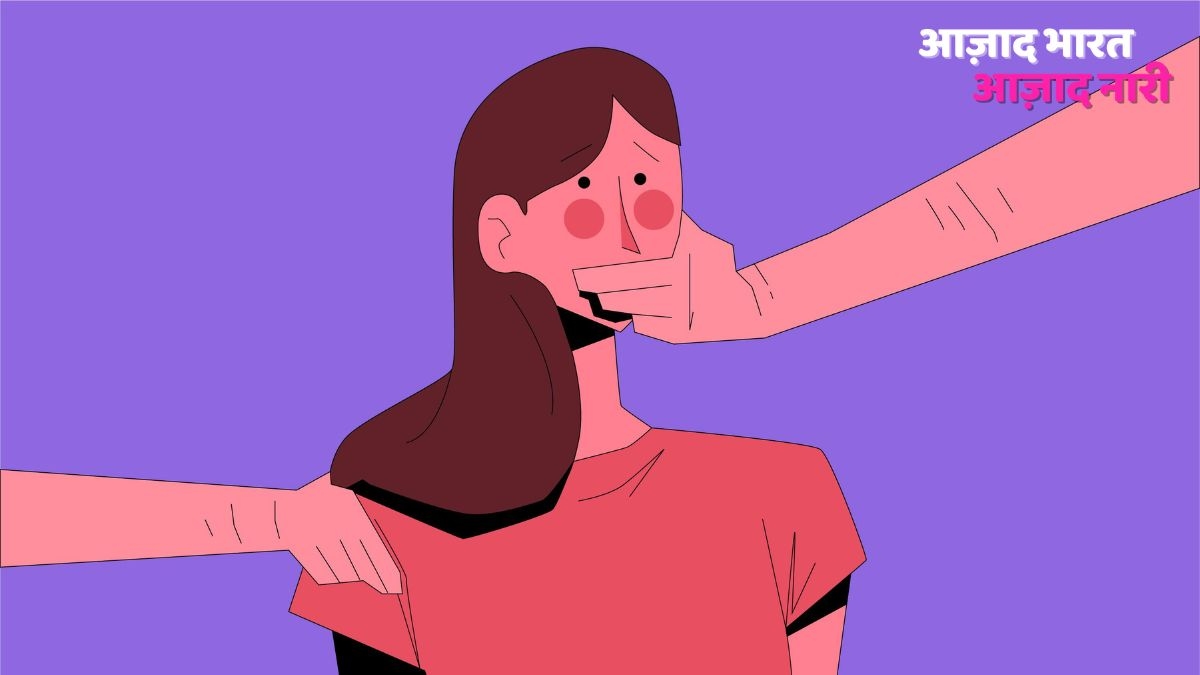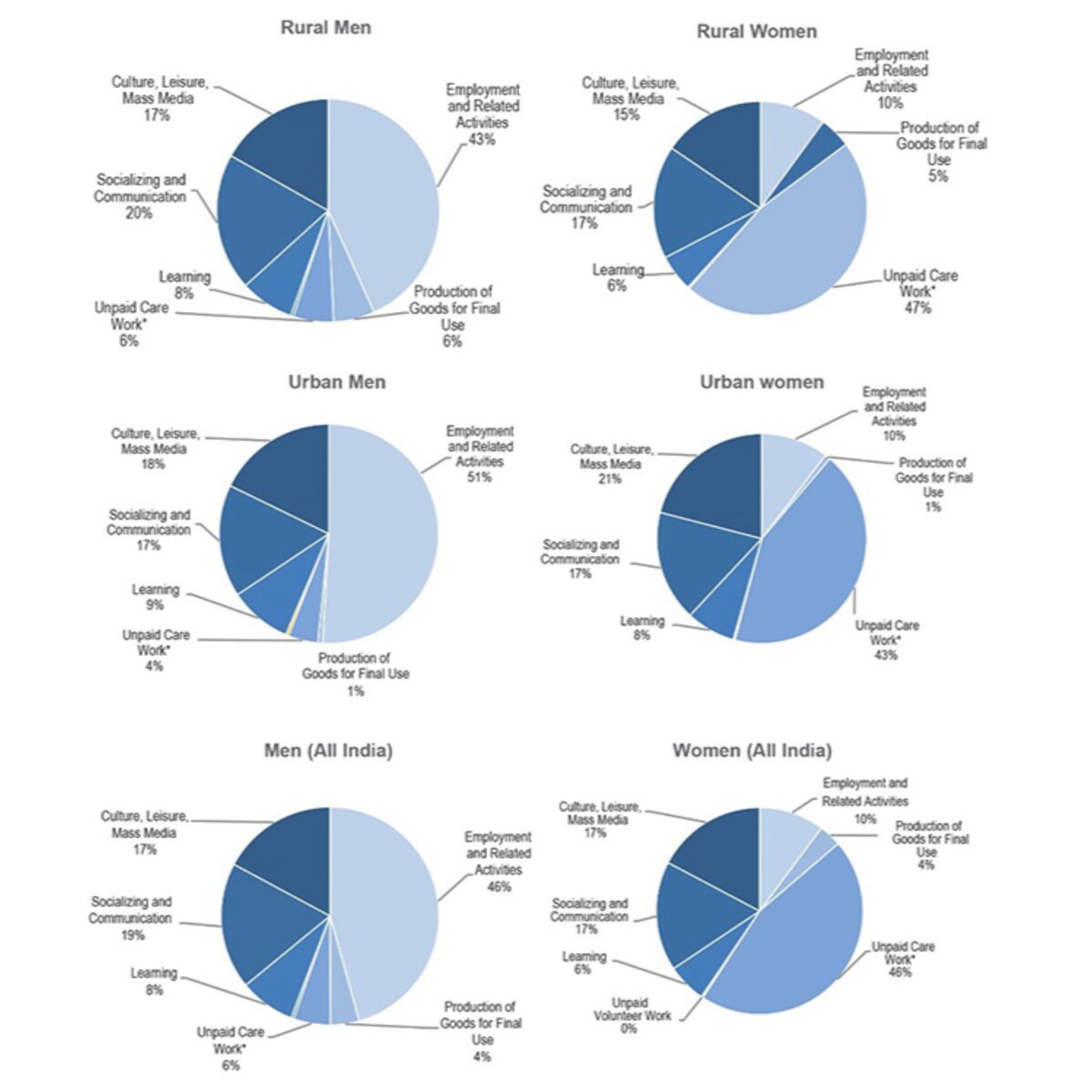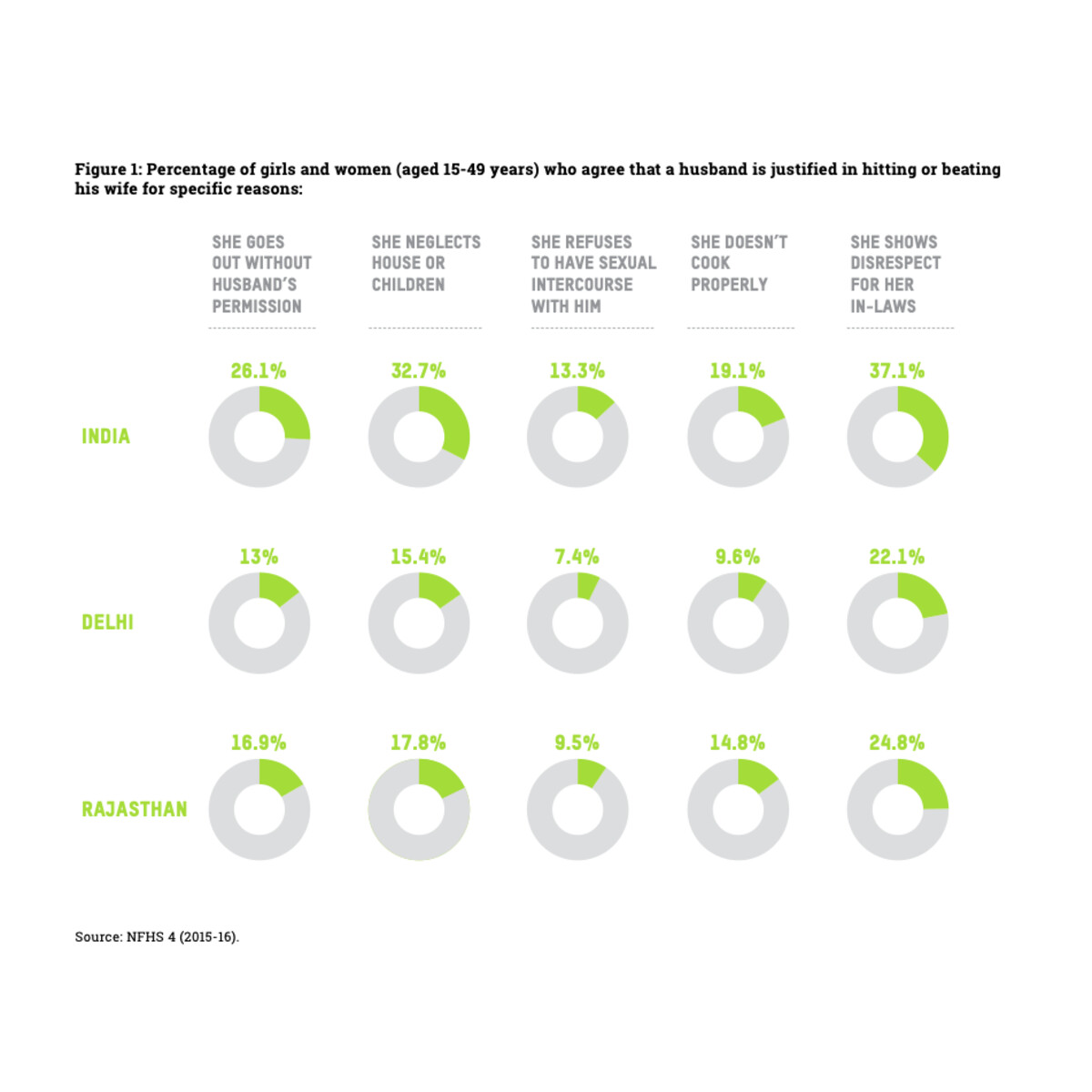
In the vast tapestry of human societies, India's cultural fabric stands out for its rich history and diverse traditions. Yet woven within this intricate tapestry is a thread that has been pulling women down for generations: patriarchy. This social construct has conveniently dictated gender roles, perpetuating an unjust sexual division of labour and stifling women's dreams and aspirations.

Patriarchy, like an invisible hand, has been quietly orchestrating the lives of Indian women for centuries. A mere look at the data underscores the deeply entrenched nature of this phenomenon. According to the National Family Health Survey (NFHS-5) conducted in 2019–20, only 22% of Indian women are employed. This stark contrast with the male employment rate of 74% is a glaring testament to the gender disparity perpetuated by patriarchal norms.
 Image Courtesy: Observer Reasearch Foundation
Image Courtesy: Observer Reasearch Foundation
One of the most insidious aspects of patriarchy is the unjust sexual division of labour it fosters. Women are expected to shoulder the lion's share of domestic responsibilities, regardless of their own aspirations or career ambitions. A report by the International Labour Organisation (ILO) reveals that Indian women spend nearly six hours more than men on unpaid care work each day. This discrepancy not only curtails women's personal growth but also denies them economic empowerment.
The dreams and aspirations of women often become collateral damage in the face of patriarchal expectations (Internalized Patriarchy That We All Engage In Without Realizing). Many women are forced to shelve their ambitions, surrendering to societal pressure to prioritise family over personal goals. A study by the Indian Council of Social Science Research (ICSSR) found that a staggering 57% of Indian women drop out of the workforce between the ages of 30 and 35 due to familial obligations and societal norms.
Education, often considered a beacon of hope, is not immune to the clutches of patriarchy. While the enrollment of girls in schools has improved over the years, the quality of education and opportunities afforded to them are still far from equal. The Annual Status of Education Report (ASER) highlights that despite an increase in enrollment, the learning outcomes for girls lag behind those for boys. This discrepancy underscores the deep-rooted bias against nurturing female intellectual potential.
 Image Courtesy: OXFam India
Image Courtesy: OXFam India
Societal expectations weigh heavily on women's shoulders, compressing their aspirations into a societal pressure cooker. The 'ideal' Indian woman is often depicted as someone who is self-sacrificing, nurturing, and devoted to her family. These expectations not only limit women's choices but also perpetuate a cycle of dependence. A report by Oxfam India reveals that 84% of Indian women have little to no say in household financial decisions, further cementing their subordinate position.
Despite the formidable nature of patriarchy, there are glimmers of hope that suggest a gradual shift in attitudes and perceptions. The rise of women in leadership roles across various sectors is a testament to the changing tides. Organisations like SEWA (Self-Employed Women's Association) have been instrumental in empowering women in the informal sector and challenging traditional gender roles.
Don't Miss: Aazaad Bharat, Aazaad Naari: Nushrratt Bharuccha's Take On Her Idea Of True Independence
Addressing the burden placed on women also involves redefining masculinity and engaging men as allies in the struggle for gender equality. Men, too, are victims of patriarchal norms, which restrict them from expressing vulnerability or participating fully in domestic responsibilities. Engaging men in conversations about dismantling these norms can lead to more equitable relationships and shared responsibilities.

Education and awareness remain pivotal in dismantling patriarchal structures. Government initiatives such as the Beti Bachao, Beti Padhao (Save the Daughter, Educate the Daughter) campaign have taken steps towards challenging gender biassed mindsets. However, these efforts must be consistently reinforced and tailored to local contexts to be effective.
Don't Miss: Meet Palak Mittal: The Rising Star Who Secured A Whopping Rs 1 Crore Package At Amazon
The burden of being born a woman in India is not an individual's fate; it's a collective societal responsibility to dismantle patriarchal norms. This evidence illuminates the stark reality of gender inequality perpetuated by these norms. It is imperative for both men and women to challenge the status quo, defy conventional roles, and collectively nurture an environment where aspirations can flourish unhindered. Only then can the burden of being born a woman truly be lifted, paving the way for a more just and equitable society.
Also watch this video
Herzindagi video
Our aim is to provide accurate, safe and expert verified information through our articles and social media handles. The remedies, advice and tips mentioned here are for general information only. Please consult your expert before trying any kind of health, beauty, life hacks or astrology related tips. For any feedback or complaint, contact us at [email protected].